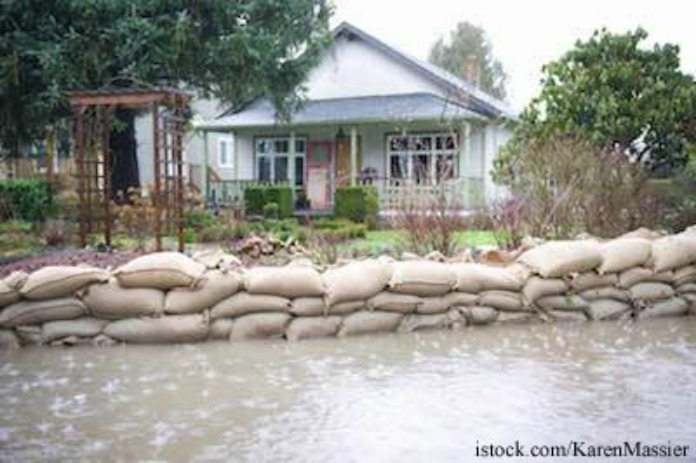The Centers for Disease Control and Prevention (CDC) is offering advice for anyone who is in the path of Hurricane Irma. This is a very dangerous storm.

Everyone should have a safety plan in case any natural or manmade disaster strikes anywhere. Food safety can be compromised in the case of natural disasters. Flood waters can contain pathogenic bacteria, chemicals, and even heavy metals. And the loss of power can render perishable foods unsafe.
Before the hurricane, stock up on emergency supplies. Write down emergency phone numbers. And make sure that every member of your family understands the plan.
If you are going to stay, make sure you have enough clean water. Every family member should have five gallons of clean water every day. You can fill clean containers with drinking water. Fill up your sinks and bathtubs with water for washing.
Lower the thermostat in the fridge and freezer to the lowest possible setting. If your power goes out, the food in the fridge will stay safe up to 4 hours if the doors are not opened. A full freezer can keep food safe for 48 hours, but only for 24 hours if partially full.
Keep an emergency kit in your car. Fill it with food that doesn’t go bad, like canned or shelf-stable foods. Add bottled water and a can opener, along with disposable utensils.
Never cook using a gas or charcoal grill in an enclosed place. And also be careful about cooking in your fireplace. If the fireplace hasn’t been cleaned recently, a fire could occur.
After the storm, throw away food that may have come into contact with flood or storm water. Although most pathogenic bacteria do not cause changes in food’s smell, taste or texture, discard any food that has an unusual odor, color, or texture. Don’t taste food to see if it’s safe to eat. And throw away perishable foods that have been above 40°F for more than two hours, one hour if the air temperature is above 90°F. When in doubt, throw it out.
Throw away canned foods that are bulging, opened, or damaged. Remember that containers with screw-caps, snap-lids, crimped caps (soda pop bottles), twist caps, flip tops, snap-open, and home canned foods are not flood safe. Bacteria can enter those openings if the containers are exposed to flood water.
Do not use contaminated water to wash dishes, brush your teeth, wash and prepare food, wash your hands, make ice, or make baby formula. You can disinfect water for cleaning if you have boiled it, added disinfectants, or filtered it.
Boiling is the most reliable method to make sure water is safe to drink. This method kills viruses, bacteria, and parasites. Filter the water first if it’s cloudy. The water should be brought to a ruling boil for one minute. Let the water cool, then store in clean, sanitized containers with tight lids.
A disinfectant can be used, but it will not kill some parasites. First filter water through a clean towel or paper towel. Use household chlorine bleach to clean the water. Add 6 drops of unscented liquid chlorine household bleach for each gallon of clear water. Add 12 drops for each gallon of cloudy water. Stir the mixture well, and let it stand for at least 30 minutes before using.
Chlorine dioxide tablets can also be used to clean water. Follow the manufacturer’s instructions for use.
And never drink water that has a strange color or odor, or that you suspect may be contaminated with fuel or toxic chemicals. This water cannot be made safe using any method.
Your home may have sources of water that you don’t think of. Water from your home’s heating tank (not your home heating system) can be used. Melted ice cubes made with non-contaminated water are a good source. You can use water from your home’s toilet tank (NOT the bowl) if it is clear and hasn’t been chemically treated with toilet cleaners. Liquid from canned fruit and vegetables is a source of water. Water from swimming pools and spas can be used for cleaning, but not for drinking.Never use water from radiators, hot water boilers that are part of the home’s heating system, and waterbeds.
Follow instruction from local and national authorities. And stay safe.




